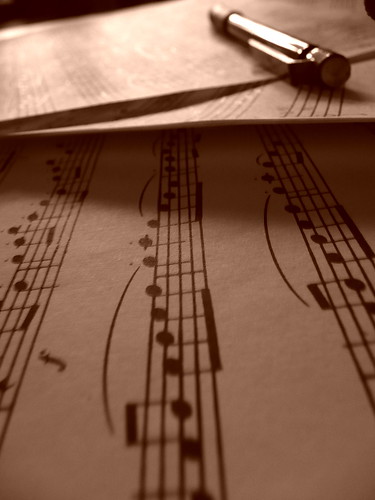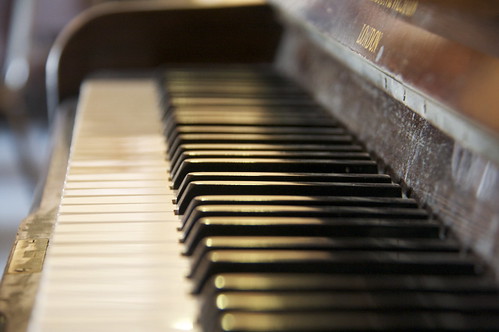 |
| {photo credit} |
"Let's start at the beginning, ok? First you have to be introduced! Do you know what this part of your violin is called?" Thus begins the first of many lessons - sometimes months of lessons - before Aspirer will scratch out even her beginning tunes. Yet, for all there is to learn, for all the lack of music her practice holds in these opening weeks, you could bet your bottom dollar that she announces, with child-like importance, that she "plays the violin!"
You have begun, my dear, but let us work hard in the months to come. Only then will you truly play.
As Aspirer twirls out to the car, Intermediate strolls into the room. Standing an inch or two above me - he has suddenly sprouted in these last months - he arranges his books upon the piano stand and maneuvers the bench to a precise distance from the instrument with a nonchalance that bespeaks several years' habit. Settled before the piano, he plays his assignments with a familiarity that often tempts him into carelessness, resulting in the occasional discordant fumble. Half his life he's played. He knows the instrument, the notes, the techniques, the challenges - in fact, he knows pretty much all there is to know about his instrument. He's here for accountability in applying his knowledge, but mistakes are insignificant when you know how to fix them, right? "Yeah, I play the piano," he will agree when asked, with a blasé shrug of the shoulders.
Oh Intermediate, you have learned so much. Can you not decide to diligently apply all you know to your music? Then you would really know what it means to play.
 |
| {photo credit} |
When she plays, her music dances like sunlight through the room. Her performance is as perfect as she knows how to make it, and my role has diminished to that of merely pointing out new ideas or interpretations of the music. "Do you play?" "Well, not very well - but I do take lessons," is her reply.
And yet, my dear Advanced, you are the one who knows -
You know what it is to make music.
You know what it is to make music.
When you play, it is not with the optimistic songs of Aspirer; she does not realize all she has to learn, and her music is unrecognizable to any who hear her. When you play, it is not with the confidence of knowledge held by Intermediate; to know is his intention, and to do is inconvenient. When you play, dear Advanced, your music touches others - because you sing to your fullest capacity, always striving for excellence, always mindful of all you have yet to learn. And that is how music is made.
Do you play?
Do you play?
3 comments:
Wow! This is going to have to be required reading for my students! And how true this is of every area of life!
Beautiful, Sarah. Absolutely beautiful.
This, I like!
Post a Comment